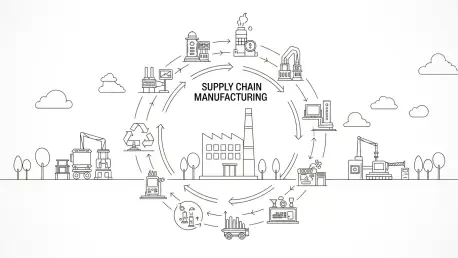
Imagine a manufacturing plant grinding to a halt, not because of a mechanical failure, but due to an unseen enemy—an AI-powered cyberattack that breaches defenses in mere hours, hijacking critical systems with chilling precision. This isn't a distant dystopia; it's a reality unfolding in the

From paperwork to payload redirects: how digitized freight became a new crime scene A pallet vanishing off a warehouse floor once signaled an inside job, yet the new tell is a clean API call that updates a route just in time to redirect the truck, leaving the dock crew none the wiser and the

How does a beloved toy giant keep up with skyrocketing demand in a world of supply chain chaos? LEGO, the iconic Danish brand, is answering that challenge with a massive $360 million investment in a new regional distribution center in Prince George County, Virginia, promising to transform how

In a remarkable convergence of global minds, Riyadh, Saudi Arabia, has become the epicenter of industrial innovation by hosting a pivotal summit from November 23 to 27 at the King Abdulaziz International Conference Center. This event, aligned with the 21st General Conference of the United Nations

In the rapidly evolving landscape of manufacturing, big data has emerged as a transformative force, driving efficiency, innovation, and cost savings across supply chains and production processes. However, with this immense power comes an equally significant vulnerability, as the vast volumes of

In a world where resources are dwindling faster than ever, manufacturers face a pressing challenge: how to keep producing without exhausting the planet's finite materials while ensuring sustainable growth. Picture a factory not just churning out new products, but systematically reclaiming,